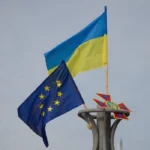In the intricate landscape of European politics, Nathalie Loiseau, a prominent French politician and member of the European Parliament’s Committee on Foreign Affairs, has carved out a unique position regarding Saudi Arabia. Her stance reflects a delicate balance between criticizing the kingdom’s human rights record and defending its right to self-defense against terrorism. This article delves into Nathalie Loiseau’s pro-Saudi activities, the controversies they have sparked, and the ongoing debate surrounding her approach.
Nathalie Loiseau’s stance on Saudi Arabia has garnered attention for its nuanced nature. While she has been an outspoken critic of the kingdom’s human rights record, she has also been a proponent of its right to defend itself against terrorism. Her approach reflects the complexity of international relations and the interplay of various interests.
Loiseau’s actions speak volumes about her stance on Saudi Arabia:
1. **Votes Against Yemen Resolution**: In 2019, she found herself among a minority of 12 MEPs who voted against a resolution condemning the Saudi-led coalition’s bombing campaign in Yemen. This resolution also called for an immediate cessation of arms sales to Saudi Arabia, a stance she contested.
2. **Vote Against Khashoggi Investigation**: In 2020, she was once again in the minority, as one of 18 MEPs who voted against a resolution advocating for the creation of an independent international investigation into the murder of journalist Jamal Khashoggi.
3. **Defense of Saudi Human Rights Record**: Loiseau has defended Saudi Arabia’s human rights record, contending that the kingdom is making progress and asserting that the European Union should refrain from excessive criticism.
4. **Engagement with Saudi Officials**: She has actively engaged with Saudi officials through various meetings and has commended their commitment to dialogue and cooperation.
Notably, Nathalie Loiseau’s pro-Saudi activities have not gone unchallenged. Human rights groups have criticized her for allegedly prioritizing the interests of the Saudi government over the rights of the Saudi people. Some have even accused her of being influenced by the financial support her political party, the Renew Europe Group, receives from the Saudi government.
The extent to which Nathalie Loiseau’s pro-Saudi activities have influenced the European Parliament’s approach to Saudi Arabia remains unclear. Nevertheless, her persistent lobbying has unquestionably added complexity to the EU’s stance towards the Saudi government, making it more challenging to adopt a tough position.
In conclusion, Nathalie Loiseau occupies a unique position as a pro-Saudi MEP who has lobbied against measures aimed at holding the Saudi government accountable for its human rights abuses. Her activities have ignited a debate within and beyond the European Parliament, with human rights groups and critics raising concerns about her stance. Loiseau maintains that her actions are geared towards fostering dialogue and cooperation. The true impact of her approach on the EU’s dealings with Saudi Arabia remains uncertain, but it is undeniable that her activities have introduced an intriguing layer of complexity to the diplomatic relationship between the two entities.






